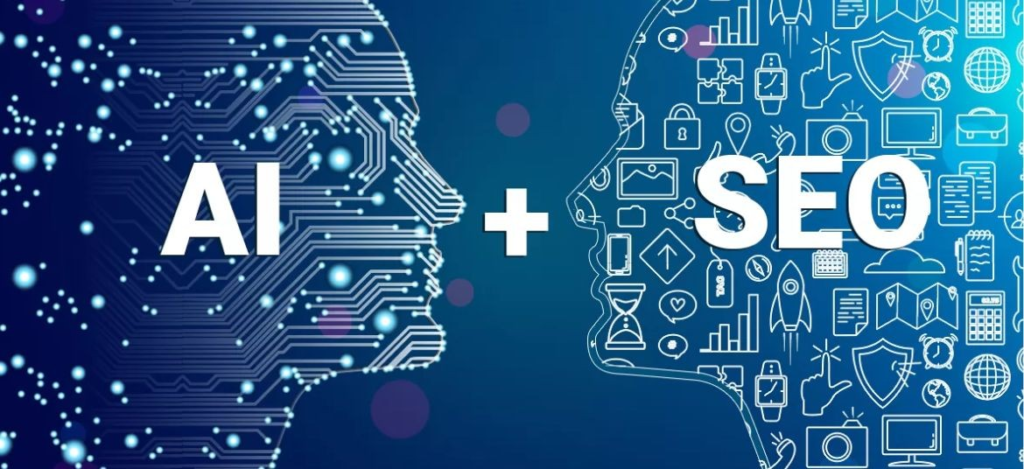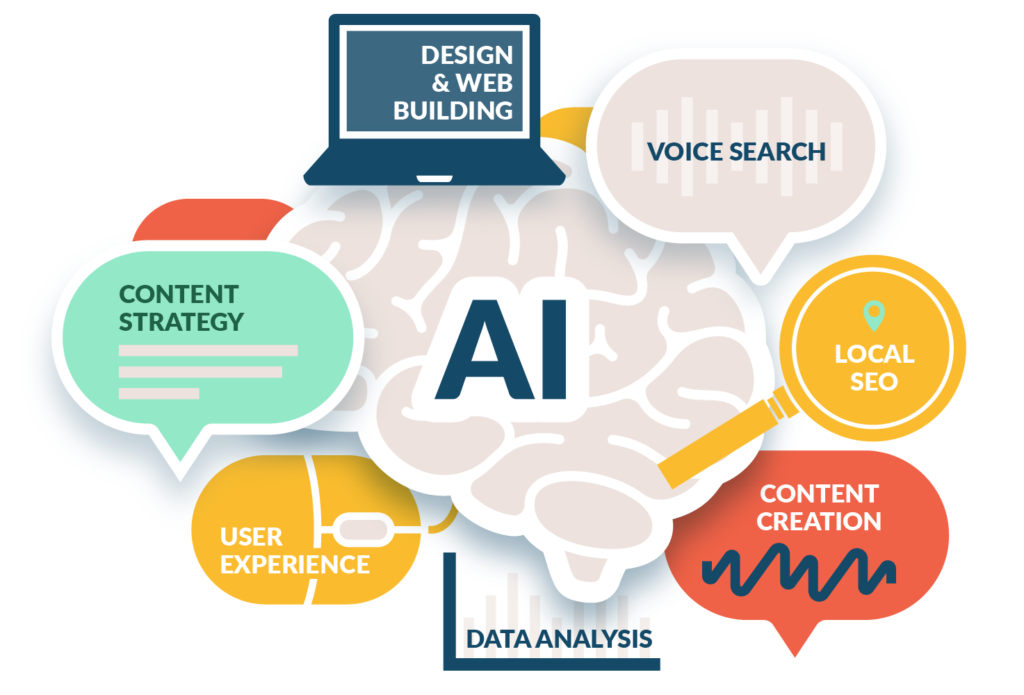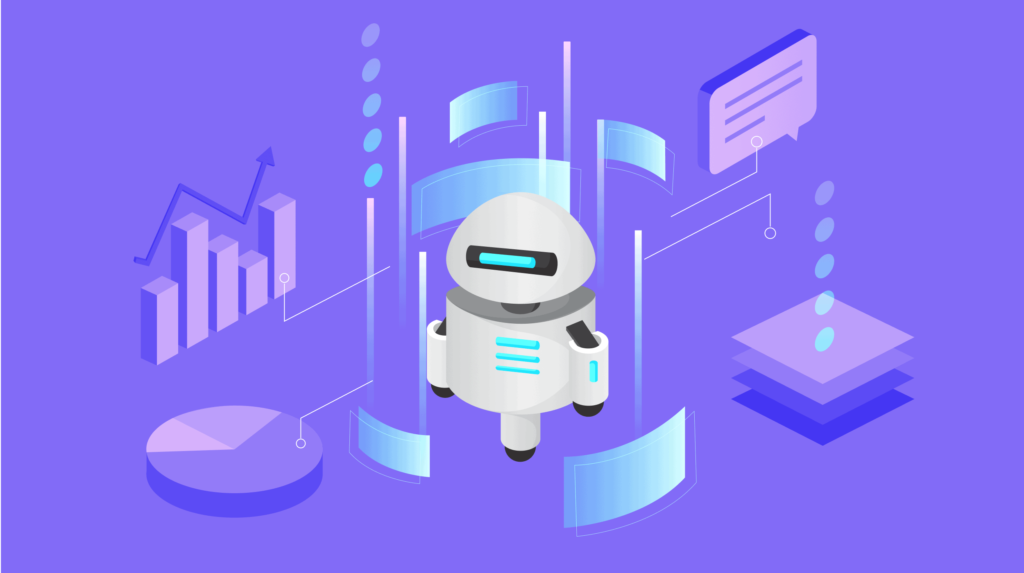The subject of search engine optimization (SEO) is constantly changing, and the introduction of artificial intelligence (AI) has brought about substantial transformations. Businesses now approach digital marketing in a completely new way because to the inclusion of AI into SEO methods, which allows for more accurate and efficient strategies. As with any technical development, there are advantages and disadvantages to using AI in SEO. This blog post will examine how AI is being used in SEO, looking at its advantages, drawbacks, and top resources for improving your online visibility.
The Role of AI in SEO
AI has become a cornerstone in SEO by providing smarter and more automated processes. From content creation and keyword research to data analysis and user experience enhancement, AI’s influence in SEO is pervasive.

1. Content Creation and Optimization
AI-driven tools can generate content, optimize it for search engines, and even predict which type of content will resonate best with your target audience. Natural Language Processing (NLP) models like GPT-4 are used to create content that is not only relevant but also engaging and aligned with SEO best practices. AI tools analyze search intent, optimize for readability, and suggest edits to improve the content’s overall quality.
2. Keyword Research
AI simplifies keyword research by analyzing vast amounts of data to identify trends and patterns. Tools powered by AI can predict which keywords are most likely to perform well, taking into account factors such as competition, search volume, and user intent. This allows marketers to focus on the most promising keywords, saving time and effort.
3. Data Analysis and Reporting
AI can process large datasets quickly, providing insights that were previously impossible to obtain in real-time. AI tools can track website performance, analyze user behavior, and provide actionable insights to optimize SEO strategies. This includes identifying areas for improvement, predicting future trends, and automating reporting processes.
4. User Experience and Personalization
AI plays a critical role in enhancing user experience (UX) by personalizing content and optimizing website performance. AI algorithms can analyze user behavior and preferences, tailoring content and suggestions to individual users. This personalization can lead to higher engagement rates, lower bounce rates, and ultimately, better SEO performance.
5. Voice Search Optimization
With the rise of voice search, optimizing for natural language and conversational queries has become crucial. AI helps in understanding and optimizing for voice search by analyzing patterns in voice queries and adapting content to meet these new search behaviors. AI-driven tools can also simulate voice search scenarios to test and refine SEO strategies.
The Boons of AI in SEO
AI has brought numerous benefits to the world of SEO, making it more efficient, accurate, and scalable.

1. Enhanced Efficiency
AI tools automate many aspects of SEO, from content generation to data analysis, significantly reducing the time and effort required for manual tasks. This allows SEO professionals to focus on strategy and creativity rather than getting bogged down by repetitive tasks.
2. Improved Accuracy
AI-driven analytics provide more accurate insights by analyzing vast amounts of data and identifying patterns that human analysts might miss. This leads to better decision-making and more effective SEO strategies.
3. Scalability
AI enables businesses to scale their SEO efforts by automating processes and managing large datasets. This is particularly beneficial for large enterprises with extensive digital footprints, as AI can handle the complexity and volume of data more efficiently than human teams.
4. Better User Experience
AI’s ability to personalize content and optimize website performance leads to a better user experience. This, in turn, can improve engagement metrics, such as time on site, page views, and conversion rates, all of which are critical for SEO success.
5. Predictive Analytics
AI’s predictive capabilities allow businesses to anticipate trends and adjust their SEO strategies accordingly. This proactive approach can help businesses stay ahead of the competition and capitalize on emerging opportunities.
The Banes of AI in SEO
Despite its numerous advantages, the implementation of AI in SEO is not without challenges.
1. Over-Reliance on Automation
While AI can automate many tasks, over-reliance on automation can lead to a lack of creativity and strategic thinking. SEO is not just about following algorithms; it also requires a deep understanding of your audience, industry trends, and creative content development. Relying too heavily on AI can result in generic, uninspired content that fails to engage users.
2. Data Privacy Concerns
AI-driven SEO relies heavily on data collection and analysis, raising concerns about data privacy and security. With stricter regulations like GDPR, businesses must be cautious about how they collect, store, and use data, ensuring they comply with legal requirements.
3. Bias in AI Algorithms
AI algorithms are only as good as the data they are trained on. If the training data is biased, the AI’s outputs will also be biased. This can lead to inaccurate predictions, skewed insights, and potentially harmful content recommendations. Addressing bias in AI is an ongoing challenge that requires continuous monitoring and adjustment.
4. High Costs
Implementing AI-driven SEO tools can be expensive, especially for small businesses with limited budgets. While the long-term benefits often justify the investment, the initial cost can be a barrier for some businesses.
5. Complexity and Learning Curve
AI tools can be complex and require a steep learning curve, especially for those who are not tech-savvy. SEO professionals need to invest time and resources into understanding how to use these tools effectively, which can be a challenge for smaller teams or individuals.
Best AI Tools for SEO
Several AI-powered tools can help businesses optimize their SEO efforts. Below are some of the most effective tools available today.
1. Surfer SEO
Surfer SEO is an AI-driven tool that helps optimize content by analyzing over 500 factors that influence ranking. It provides data-driven recommendations for improving content based on keyword analysis, SERP comparison, and content structure.
2. MarketMuse
MarketMuse uses AI to assist with content planning and optimization. It analyzes your content, compares it with top-performing content in your niche, and provides insights on how to improve your content’s relevance and ranking potential.
3. BrightEdge
BrightEdge is an AI-powered platform that offers a wide range of SEO tools, including keyword research, content optimization, and performance tracking. It uses AI to predict keyword performance and provide recommendations for content improvement.
4. Frase
Frase helps with content creation by analyzing search queries and providing topic suggestions based on user intent. It also offers AI-generated content briefs, which guide writers on how to create content that meets SEO best practices.
5. Clearscope
Clearscope is a content optimization tool that uses AI to analyze top-performing content and provide keyword recommendations. It helps writers create content that is more likely to rank by focusing on relevant keywords and phrases.
6. SEO PowerSuite
SEO PowerSuite offers a comprehensive set of tools for keyword research, content optimization, backlink analysis, and performance tracking. Its AI-powered features provide insights into keyword opportunities, content gaps, and technical SEO issues.
7. GrowthBar
GrowthBar is an AI-powered tool that simplifies keyword research, content generation, and backlink analysis. It’s particularly useful for bloggers and small businesses looking for an easy-to-use SEO tool.
Conclusion
The integration of AI in SEO has undoubtedly transformed the digital marketing landscape, offering significant advantages in terms of efficiency, accuracy, and scalability. However, it also presents challenges, such as the risk of over-reliance on automation, data privacy concerns, and the potential for bias in AI algorithms.
To fully leverage the benefits of AI in SEO, businesses must strike a balance between automation and creativity, ensuring that their SEO strategies are both data-driven and human-centric. By using the right AI-powered tools, businesses can optimize their SEO efforts, enhance user experience, and stay ahead of the competition in an increasingly digital world. GMI


